Friends of Sean O'Callaghan tell why he was admired so much
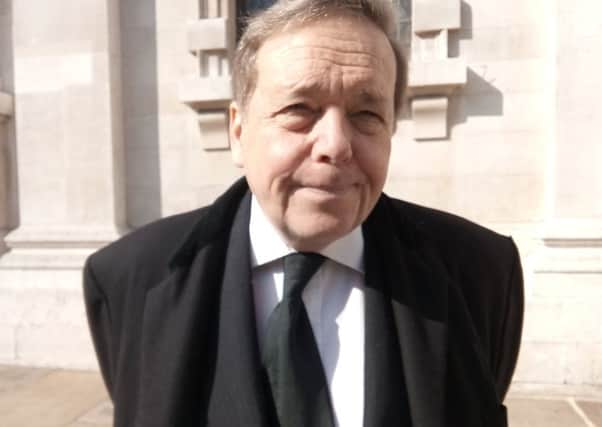

The supporters of O’Callaghan, who died last year aged 62, spoke to the News Letter after Wednesday’s service to celebrate the former republican in London.
The event, at the Anglican church St Martin in the Fields in London’s Trafalgar Square, was almost full, and was attended by a wide range of influential people.
Advertisement
Hide AdAdvertisement
Hide AdLord Salisbury, the Conservative peer, said O’Callaghan “had such an extraordinary range of acquaintance”.
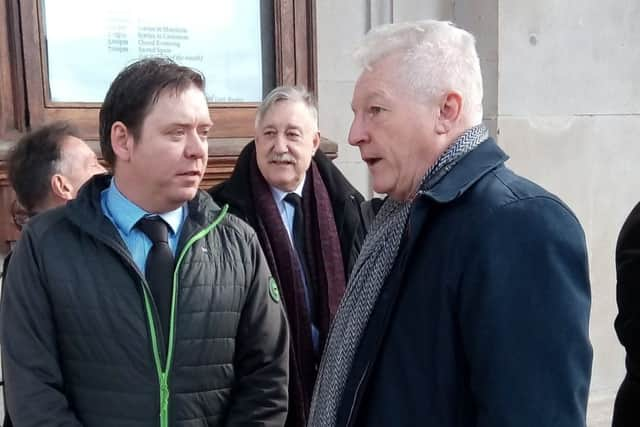

He got to know the IRA’s former southern Ireland leader when, in the 1990s, it “was suggested to him that he might like to ring me from Maghaberry jail”.
The Tory peer added: “After he was released we became very good friends, we saw each other intermittently but pretty frequently.”
Lord Salisbury said: “He had a nice line in teasing his friends, he had a very acute political sense, but also I think he was driven by a sense of guilt about particularly the murders he had committed.”
Advertisement
Hide AdAdvertisement
Hide AdHe added: “He was a remarkable man and one of the most extraordinary achievements was that he managed to avoid being assassinated by his former associates, who of course take a dim view of people they think of as traitors.”
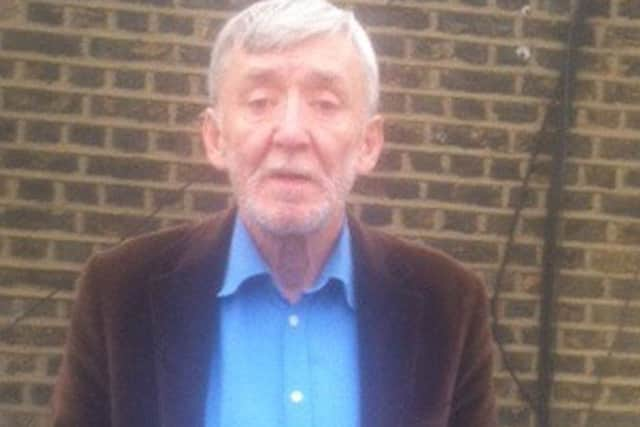

Among the dignitaries at the service were the former editors of the Sunday and Daily Telegraphs, Dominic Lawson and Charles Moore.
Mr Lawson said: “I came today because I respected and admired him. I didn’t know him especially well, but I invited him on to a series I did for the BBC, called ‘Why I Changed My Mind’, and his was the most extraordinary and brilliant of all the contributions.
“I would just say to your readers it is on the BBC iplayer this fifteen minute interview, worth listening to.”
Advertisement
Hide AdAdvertisement
Hide AdMr Moore said: “I went to see him in Maghaberry prison, in the 1990s. I agree very much with a point that was made in the service, that he was full of moral courage as well as physical courage.
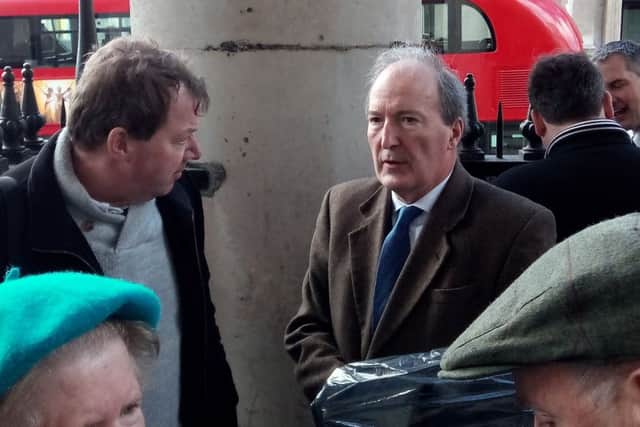

“And like a true man with moral courage he could sort of relate to everybody in a strange way, he was the same with everybody, he didn’t care whether they were rich, poor, famous, unknown, infamous.
“I mean nobody else in British history could get this strange mixture of the British establishment, the bohemian world, the intellectual world, the people of the Republic, the spook world, everything.”
The writer Ruth Dudley Edwards said that a mutual friend took her to see O’Callaghan in jail in 1995.
Advertisement
Hide AdAdvertisement
Hide Ad“I knew almost nothing about him, except that he had written a couple of articles that were extraordinarily perceptive, and when I saw him I found him the most extraordinary political analyst.
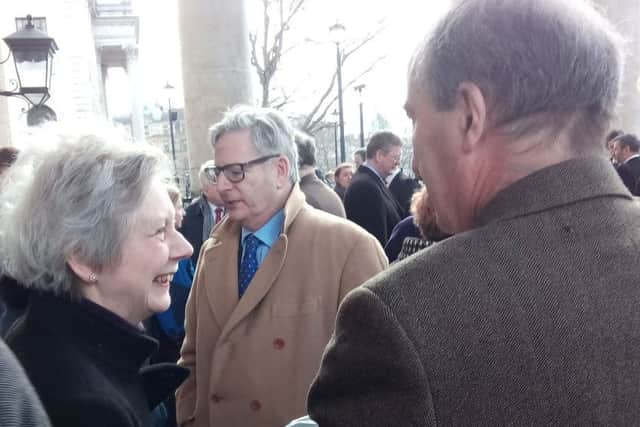

“He was very, very intelligent. And he used to ring me from jail and I would go to see him when he was over and I would bring people to meet him — he got to know a tremendous number of people, all sorts of journalists, he was utterly invaluable.”
He was also a good listener, she said. “I suppose that is born of being a spy.”
Lord Trimble, the ex Ulster Unionist first minister, said he hesitated before his first meeting with O’Callaghan. “From then on I had no regrets about being in communication with him, which was quite often, obviously during the run-up to the talks.”
Advertisement
Hide AdAdvertisement
Hide AdWednesday’s service, which was full of tributes, Lord Trimble added, gave a “run-down of his qualities”.
The Ulster-born former military commander Colonel Tim Collins said after the service that he had known O’Callaghan for about 10 years and considered him a friend.
“Sean, I think, actually in his latter stage became an Irish statesman, and because he had come from inside violence he was the best person to show us the road away from violence,” Col Collins said. “He is also the person who identified and uncovered Sinn Fein and the IRA for what it was — one and the same organisation — and for that I think everybody should be grateful.”


Rory Hanrahan, Sean O’Callaghan’s son, said that he considered his father to have been “an unpaid servant of the Irish state, unpaid worker for the Garda Siochana who saved many, many lives in both these islands”.
Advertisement
Hide AdAdvertisement
Hide AdDavid Burnside, the ex Ulster Unionist MP for South Antrim, said: “I spoke to a police friend of Peter Flanagan, the Special Branch Catholic officer that he killed, and there still was feeling at home that he killed him, but I think that he had done his time for that and he was a good man, a very good man.”